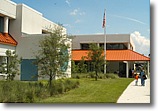- Education Topics
- Achievement Gap
- Alternative Education
- American Education Awards
- Assessment & Evaluation
- Education during COVID-19
- Education Economics
- Education Environment
- Education in the United States during COVID-19
- Education Issues
- Education Policy
- Education Psychology
- Education Scandals and Controversies
- Education Reform
- Education Theory
- Education Worldwide
- Educational Leadership
- Educational Philosophy
- Educational Research
- Educational Technology
- Federal Education Legislation
- Higher Education Worldwide
- Homeless Education
- Homeschooling in the United States
- Migrant Education
- Neglected/Deliquent Students
- Pedagogy
- Sociology of Education
- Special Needs
- National Directories
- After School Programs
- Alternative Schools
- The Arts
- At-Risk Students
- Camps
- Camp Services
- Colleges & Universities
- Counties
- Driving Schools
- Educational Businesses
- Financial Aid
- Higher Education
- International Programs
- Jewish Community Centers
- K-12 Schools
- Language Studies
- Libraries
- Organizations
- Preschools
- Professional Development
- Prom Services
- School Assemblies
- School Districts
- School Field Trips
- School Health
- School Supplies
- School Travel
- School Vendors
- Schools Worldwide
- Special Education
- Special Needs
- Study Abroad
- Teaching Abroad
- Volunteer Programs
- Youth Sports
- For Schools
- Academic Standards
- Assembly Programs
- Blue Ribbon Schools Program
- Educational Accreditation
- Educational Television Channels
- Education in the United States
- History of Education in the United States
- Reading Education in the U.S.
- School Grades
- School Meal Programs
- School Types
- School Uniforms
- Special Education in the United States
- Systems of Formal Education
- U.S. Education Legislation
- For Teachers
- Academic Dishonesty
- Childcare State Licensing Requirements
- Classroom Management
- Education Subjects
- Educational Practices
- Interdisciplinary Teaching
- Job and Interview Tips
- Lesson Plans | Grades
- Professional Development
- State Curriculum Standards
- Substitute Teaching
- Teacher Salary
- Teacher Training Programs
- Teaching Methods
- Training and Certification
- For Students
- Academic Competitions
- Admissions Testing
- At-Risk Students
- Career Planning
- College Admissions
- Drivers License
- Educational Programs
- Educational Television
- High School Dropouts
- Higher Education
- School Health
- Senior Proms
- Sex Education
- Standardized Testing
- Student Financial Aid
- Student Television Stations
- Summer Learning Loss
Douglas L. Jamerson Elementary

Basic Information
Address: 1200 37th Street S. St. Petersburg, FL 33711
County: Pinellas
District: Pinellas
Phone Number: 727-5521703
Email: clementsj@pcsb.org
Principal: Mary Jane Dann
Additional Information
School Type: Public- Magnet- Mathematics and Engineering
Grade Level:
K-5
Founded: 2003
School Schedule (Hours in Day): 8:35 am - 2:35pm
School Days in Calendar Year: 180
School Size: 515
Classroom Size: Grades k-3- 18 students, Grades 4 and 5- 22 students
Support Services:
Exceptional Education Programs at our school include Voluntary Pre-K blended, Autistic (ASD), Communication Disorders (CD), Specific Learning Disabilities (SLD) and gifted services.
Title I School
Camp Programs: No
After School Programs: Yes
PTA Organization: Yes
School Clubs:
#Y MCA before/after-school program (St. Petersburg, 895-9622)
# Multi-cultural Club
# Student Council
# Engineering Club
# Chess Club
# Math Club
# Drama Club
# Cooking Club
# Sign Language Club
# Spanish Club
# volunteer and mentor/tutor programs
# partnerships with Gibbs High School, St. Petersburg High School and the University of South Florida
# Lawyer's for Literacy partnership
# All Pro Dads
# breakfast program
# PBS.
Mission Statement:
Our mission is to provide a positive and safe learning environment, which integrates real world problem solving and engineering experiences to promote highest student achievement.
School History:
Douglas L. Jamerson Jr. Elementary opened as a Pinellas County school in August 2003. Our students have learning opportunities that stimulate their intellectual curiosity, require them to  demonstrate they have learned how to learn, and enable them to become productive and effective citizens. The curriculum consists of the highest-quality research based programs delivered by a specially selected and trained teaching force. The school has a staff that has demonstrated a commitment to continuous personal professional learning. This is evident in the commitment to build the school around rigorous national teaching standards. Our teaching staff is National Board trained or has agreed to complete the training. Sixty percent have a Masters degree or higher. (more) All staff members have high expectations for student success and will work individually and collaboratively to create the optimal conditions that will promote success.
demonstrate they have learned how to learn, and enable them to become productive and effective citizens. The curriculum consists of the highest-quality research based programs delivered by a specially selected and trained teaching force. The school has a staff that has demonstrated a commitment to continuous personal professional learning. This is evident in the commitment to build the school around rigorous national teaching standards. Our teaching staff is National Board trained or has agreed to complete the training. Sixty percent have a Masters degree or higher. (more) All staff members have high expectations for student success and will work individually and collaboratively to create the optimal conditions that will promote success.
Programs and Services:
Jamerson's magnet program is focused on mathematics and engineering. Engineering is integrated through all grades. Design challenges integrate, support and reinforce core curriculum objectives.
Notes/School Information:
At Jamerson we provide an integrated math and engineering curriculum that fosters a love of learning, empowering each student to succeed. Our school received a grant that provided over $1,000,000 to develop our one of kind curriculum uniquely designed by our faculty, advising engineering professors, infusing the best engineering learning tools and instructional strategies avaialable.
Jamerson has been awarded the Magnet School of Excellence in 2007, 2008, and 2010.
Jamerson received Magnet School of Distrinction in 2009




